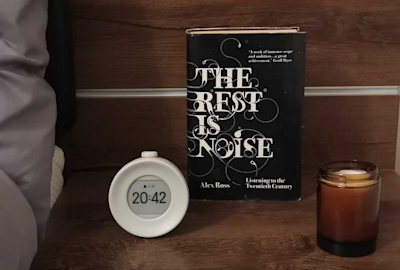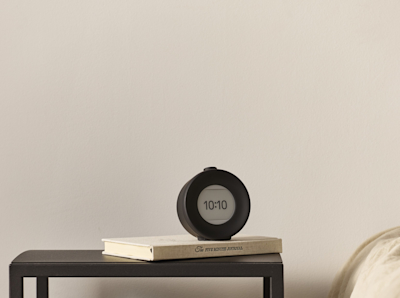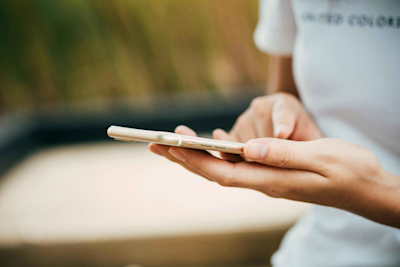
8 Tips for Mindfulness in the Workplace
Mindful work is a term that is gaining popularity as we try to deal with the struggles of modern work environments. We all know what we do for a living, some of us work for ourselves, some of us work for others, some of us work part time, some of us work full time and some of us volunteer. The list of ways we work is extensive and with technology being commonplace in most forms of work, there’s even more pressure on us to be productive.
Some jobs wouldn’t even exist without technology. Can you imagine your job without it? Try to visualise a comparison between the work you would get done using a laptop, tablet or phone, to the work you would get done without any devices? When you consider yourself working without technology, recognise that you’re already doing much more than you would have been able to several years ago!
Access to an almost infinite amount of information is easier than ever, yet deadlines are still causing people to feel overwhelmed, work days are still too long and most people who work in an office environment, are still eating lunch at their desks. Burnout affects so many of us but most of us never change the way we work in order to find the solution we need.
According to the Annual Review of Psychology (2017), mindfulness interventions improved outcomes in several areas of life such as chronic pain, depression relapse, addiction etc. All of which are things which would affect or even inhibit our ability to work. Randomized controlled trials (RCTs) in relation to mindfulness interventions have risen, helping us to better understand the effect mindfulness has on health, cognitive, affective, and interpersonal outcomes.
In this guide, we’re going to share some tips that might help you work more mindfully, thus giving you the satisfaction you need to enjoy your work.
Our tips to Mindful Work:
1. Practice mindfulness anywhere.
Some people don’t tend to realize that it’s possible to practice mindfulness without meditation. It’s simply the ability to concentrate on one thing at a time, to focus all of your energy into the present moment. Don’t worry about the tasks you need to do as a whole, instead, spend time on the task you’re doing. Ditch multitasking for monotasking. Start practicing mindfulness, even before you start your work. Shower mindfully, eat breakfast mindfully, commute mindfully and so on.
2. Embrace everything around you for what it is, be part of all that exists.
Understand the connection between you and everything you come into contact with. You’ll find a new appreciation for what you’re doing when you become more aware of everything that goes into it. Not using technology to take notes in meetings and instead opting for more traditional (pen and paper) methods means that you’re more likely to retain information, due to the use of different cognitive functions. (Mueller, P., Oppenheimer, D., 2014) If you need to have a meeting with someone, focus solely on that person, don’t check your phone or get distracted by messages or emails. This is also known as ‘active listening’. It’s likely that they will appreciate it and your connection with that person will ultimately be stronger.
3. Stop eating at your desk.
The best way to start incorporating mindfulness into your work day would be mindful eating, as this is the easiest way to be mindful. Even if you’re snacking, try to move around the office or find somewhere nice to sit. Imagine you have an apple, when you bite into the apple, think about the texture of it, how thick is the skin? Did you peel the skin off first? Did you slice it? Is it a red, green or yellow apple? Where is the apple from? Is it more sweet or sour? What kind of apple do you prefer? Is it juicy or a little dry? Although it might seem a little odd to ask yourself so much about an apple, if you’re busy answering questions in your head, you’re not going to be thinking about much else, including the things that might be worrying you.
4. Turn off or put away your phone.
If the task you’re working on doesn’t require that you need your phone, switch it off or put it away. There are apps which limit the time you spend on various other apps as well as neutral devices such as feature phones like Mudita Pure. A study by the University of Würzburg and Nottingham Trent University proved that people are 26% more productive at work when they don’t have access to their smartphones. This goes to show the power of mindful work, if you’re constantly checking your phone every time you receive a notification or you’re so used to opening and closing social media apps due to your fear of missing out (FOMO) you’re not going to get much done.
5. Write down the things that you find distract you the most.
If you actively notice the things that distract you, it’s easier to find effective and mindful solutions. For those distracted (usually in open office spaces) by the conversations or goings on around us, playing relaxing music through your headphones or even investing in noise cancelling headphones if you’d prefer to work in silence, can be very effective. If you’re distracted by what happens outside of a window, change the location of your desk, if possible. If you’re distracted by your phone, well, you know what to do!
6. Manage your time, plan your day and set goals.
Knowing what you have to do on any given day will make it easier for you to prioritise your tasks and dedicate yourself to what needs to be done. Writing a list of the things you need to do every day is one thing but remember that it’s no good having a huge list of major tasks. Instead, take one major task at a time and split it into several smaller tasks, you can use a check-list to help you. It can be very motivating to cross things off a list, as it gives us a sense of achievement.
7. Don’t work in your spare time.
This is the key to working mindfully, setting those boundaries will help you immensely. You can work when you’re working and you can do anything except work, when you’re not working. Planning your work and life schedules means that you’ll be able to occupy your spare time more efficiently and live in the present moment. Use your time to be with yourself, with your family or with your friends, without worrying about work. It can help to remove yourself from any environments which remind you of work, so if you work in an office, try spending more time outdoors!
8. Try meditating before, during or after work.
This might be easier said than done, which is why we suggest that you try meditating whenever you’re able to, whether it’s in the morning, before you start your day, during a break at work or even after work. Research has shown that interpersonal relationships, productivity, overall performance and job satisfaction at work was significantly improved by meditating. (Frew, D. R., 2017)
We hope you have found this guide to be insightful and we would love to know what you have tried to work more mindfully. Is there anything you’d like to add, have we missed anything? If you’re interested in sharing your experiences with us or writing a guest post for us, send us an email via hello@mudita.com!
Please feel free to get in touch via social media (send us some photos or videos too), you can find us on Facebook, Twitter and Instagram, let’s connect! To learn more about Mudita, take a look at our website and our other posts.
If you enjoyed reading this article, please share and recommend it!
Related stories

Mudita’s Community-Curated Wintertime Reading List
Slow down this winter with our community-curated reading list from the Mudita Forum Community, featuring books on well-being, focus, simplicity & mindful tech.

Master Your Mornings: 7 Things to Do Before Bed
Discover 7 evening habits that transform your mornings & unlock the secrets to peaceful, productive days with Mudita's mindful tech.

Stop Mindless Scrolling: Break the Habit & Reclaim Your Time
Mindless scrolling harms productivity & mental health. Reclaim time by setting limits through mindful tech use & tools like Mudita Kompakt for intentional use.
If you'd like to receive the best stories from our blog, keep up to date with our progress and get notified about our product releases and special discounts.